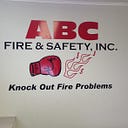Raining Safety: The Power of Fire Sprinklers in Home Protection
Introduction:
Picture this: a tranquil evening at home, the comforting warmth of a fireplace, and the sense of security that your living space provides. Yet, in the blink of an eye, disaster can strike, and a fire can threaten everything you hold dear. In such moments, having reliable safeguards in place becomes paramount. This brings us to the unsung hero of home safety — the fire sprinkler system. In this article, we will explore the profound impact of fire sprinklers on protecting homes, offering a level of safety that goes beyond traditional fire prevention measures.

Understanding the Evolution of Fire Safety:
Throughout history, fire has been both a companion and a peril. While it has been harnessed for various benefits, the destructive potential of uncontrolled fires has always been a concern. As our knowledge of fire hazards has expanded, so has our technology for mitigating these risks. Fire sprinklers, once predominantly associated with commercial spaces, have evolved into a vital component of residential safety.
How Fire Sprinklers Function:
The mechanics behind fire sprinklers are elegantly simple, yet highly effective. Each sprinkler head is equipped with a heat-sensitive element that responds to elevated temperatures. When a fire occurs, the heat activates the sprinkler head, releasing pressurized water directly onto the flames. Contrary to common misconceptions, sprinklers operate individually, addressing only the specific area affected by the fire.
Dispelling Common Myths:
Myth 1: All Sprinklers Activate Simultaneously: A prevalent misunderstanding is that all sprinklers activate at once. In reality, each sprinkler head responds independently, ensuring only the ones affected by the fire release water.
Myth 2: Water Damage is Worse than Fire Damage: There’s a fear that sprinklers may cause extensive water damage. However, the amount of water released by sprinklers is significantly less than what would be discharged by firefighting hoses, often minimizing overall damage.
Myth 3: Sprinklers are Prone to Accidental Activation: Concerns about accidental activation are unfounded. Sprinklers are designed to respond to heat, not smoke or minor temperature increases, making accidental activation extremely rare.
Benefits of Residential Fire Sprinklers:
Immediate Response: The most significant advantage of fire sprinklers is their immediate response to a fire. Traditional fire response methods, such as waiting for the fire department, can result in substantial damage by the time help arrives. Sprinklers act within moments, containing the fire and preventing its escalation.
Localized Suppression: Unlike fire hoses that may drench an entire area, fire sprinklers suppress the fire only in the affected location. This targeted response minimizes water damage and prevents the fire from spreading to other parts of the home.
Life-Saving Potential: Fire sprinklers can significantly increase the chances of survival during a house fire. Their rapid response provides valuable time for occupants to escape and for emergency services to arrive.
Property Preservation: Beyond saving lives, fire sprinklers play a vital role in preserving property. The timely intervention of sprinklers can prevent extensive structural damage, reducing the financial and emotional impact on homeowners.
Installation and Maintenance:
Proper installation of a residential fire sprinkler system involves careful planning and adherence to local building codes. Consulting with professionals experienced in fire safety systems ensures correct installation. Regular maintenance is crucial to guarantee the system’s functionality when needed. Homeowners should schedule routine inspections, checking for leaks, corrosion, and any signs of damage to the sprinkler heads.
Cost Considerations:
While the installation of a fire sprinkler system may seem like a significant investment, the potential benefits far outweigh the costs. According to the National Fire Protection Association (NFPA), homes with sprinkler systems experience 87% less property damage compared to homes without them. Some insurance providers also offer discounts to homeowners with installed sprinkler systems, contributing to long-term cost savings.
Community-wide Impact:
The adoption of residential fire sprinklers can have a positive impact on entire communities. As more homes embrace this advanced safety measure, the overall risk of fire-related disasters decreases. This collective effort toward enhancing safety can lead to lower insurance premiums for the entire community.
Educating Homeowners:
Increasing awareness about the benefits of fire sprinkler systems is key to their widespread adoption. Homeowners should be informed about the potential risks of fire and the proactive steps they can take to protect their families and property. Community workshops, informational campaigns, and collaboration with local fire departments can facilitate this educational process.
Conclusion:
In the realm of home safety, fire sprinklers stand out as a formidable ally against the destructive force of fire. Their ability to swiftly and effectively respond to a fire can make the difference between a manageable incident and a catastrophic disaster. As technology advances and awareness grows, integrating residential fire sprinklers into our homes becomes not just a wise choice but a responsible one. In the quest for a safer home environment, let us embrace the power of fire sprinklers — a rain of safety that can protect what matters most.
